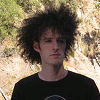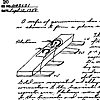| Author |
Message |
Kassen
Janitor


Joined: Jul 06, 2004
Posts: 7678
Location: The Hague, NL
G2 patch files: 3
|
 Posted: Mon Jul 11, 2005 9:51 pm Post subject:
Vocoder band calibration? Posted: Mon Jul 11, 2005 9:51 pm Post subject:
Vocoder band calibration? |
  |
|
Is anybody here aware of a strategy to calibrate the centre frequencies of a vocoder´s bands? I´m building a 12 band vocoder with some added twists and turns and decided I won´t need to cover the whole audible spectrum. Instead I´d like to concentrate all of my bands in the area of male speech.
Now, my problem is that there are many ways to scatter the bands about; they could be either equally devided over two or three octaves or they could focus most bands relative to typical places of formant peaks and use one or two in the high end to take care of the sibilants or perhaps some ballance of these tactics.
I´m also contemplating that perhaps not all bands should be the second order bp filters I´m using; perhaps it would be better to use fourth order filters in areas where bands would end up being dense and a hp one at the top. I´m also concerned that perhaps the envelope follower speed should be relative to the frequency instead of identical for all bands.
Basically I´m looking for a strategy that´s faster and yields better results then "just messing about", perhaps somebody has some experience or a good text to recomend? Google wasn´t too helpfull and I only encountered texts that refered to existing designs in general terms and none that discussed building one.
I´m using Tassman but most concerns should be identical for the NM and G2.
_________________
Kassen |
|
|
Back to top
|
|
 |
mosc
Site Admin

Joined: Jan 31, 2003
Posts: 18256
Location: Durham, NC
Audio files: 227
G2 patch files: 60
|
 Posted: Tue Jul 12, 2005 8:43 am Post subject: Posted: Tue Jul 12, 2005 8:43 am Post subject:
|
  |
|
The original Moog Modular fixed filter bank module uses these freqs. I think this would be a good place to start.
125
175
250
350
500
700
1000
1400
2000
2800
4000
5600
There were also two other filters - hi and low pass.
These filters were carefully chosen for sculpting the formats of accoustical instruments. I know he put a lot of thought and experimentation into it.
_________________
--Howard
my music and other stuff |
|
|
Back to top
|
|
 |
Kassen
Janitor


Joined: Jul 06, 2004
Posts: 7678
Location: The Hague, NL
G2 patch files: 3
|
 Posted: Tue Jul 12, 2005 9:42 am Post subject: Posted: Tue Jul 12, 2005 9:42 am Post subject:
|
  |
|
Thanks. I had encountered a variation on those in my search, as well as a set of frequencies for the EMS 2000/3000.
(125, 185, 270, 350, 430, 530, 680, 780, 950, 1150, 1380, 1680, 2070, 2780, 3800, 6400) (also hp and lp at the ends)
I´m a little mistified by the 30db/oct filter the EMS used but figure I´ll survive if I use 24 for convenience´s sake. Didn´t found anything on the order of the moog filters, but I did find this alternative set of moog frequencies.
(105, 180, 226, 285, 368, 452, 519, 717, 904, 1139, 1435, 1808, 2278, 2870, 3616, 4556)
I think I´ll make those three sets into "presets" (Tassman allows seperate presets for sub-patches which will be very convenient here) and see how I like those. Nescivi proposed a formant vocoder but I wonder how efficient that would be cpu-wise and wether I´d need to spectrum analise my own voice first.
For the envelope followers I think it would make sense to average each band roughly around half it´s centre frequency, perhaps a quarter, instead of keeping it all the same which will probably go at the expense of "t" and "k" and similar sounds.
This is turning out to be a little biger then I thought; I started out implementing a "freeze" function for the vocoder example that comes with Tassman but decided I didn´t realy like that one´s sound at all so I thought I´d work it a little.
Before you know it you are knee-deep in this stuff....
(and all I wanted were some "talking drums")
_________________
Kassen |
|
|
Back to top
|
|
 |
paul e.

Joined: Sep 22, 2003
Posts: 1567
Location: toronto, canada
Audio files: 2
|
 Posted: Tue Jul 12, 2005 9:43 am Post subject:
Re: Vocoder band calibration? Posted: Tue Jul 12, 2005 9:43 am Post subject:
Re: Vocoder band calibration? |
  |
|
| Kassen wrote: | I´m also concerned that perhaps the envelope follower speed should be relative to the frequency instead of identical for all bands.
. |
interesting..i cannot provide any insight on this..just curious why you are thinking that...
_________________
Spiral Recordings |
|
|
Back to top
|
|
 |
Kassen
Janitor


Joined: Jul 06, 2004
Posts: 7678
Location: The Hague, NL
G2 patch files: 3
|
 Posted: Tue Jul 12, 2005 9:51 am Post subject:
Re: Vocoder band calibration? Posted: Tue Jul 12, 2005 9:51 am Post subject:
Re: Vocoder band calibration? |
  |
|
| paul e. wrote: |
interesting..i cannot provide any insight on this..just curious why you are thinking that... |
Well, mainly because in these time frames it matters that low frequencies take longer per cycle then high ones. I also reasoned that low frequencies tend to change faster (per second, perhaps not per cycle) then high ones. I wouldn´t wat to lose details like the "t"´s click on one end but neither would I want to start mutilating a 200Hz wave with a 1ms envelope-follower.
This is pure educated guessing, not based on any facts or research.
_________________
Kassen |
|
|
Back to top
|
|
 |
DrJustice

Joined: Sep 13, 2004
Posts: 2112
Location: Morokulien
Audio files: 4
|
 Posted: Tue Jul 12, 2005 10:09 am Post subject: Posted: Tue Jul 12, 2005 10:09 am Post subject:
|
  |
|
Ahhh, one of my favourites subjects - vocoders 
Edit: took me some time to post, and by the time I had submitted you were several posts further into the discussion 
Mosc, I do not have quite the same frequencies for the Moog VC. Only knowing about one Moog VC (same as the Bode 7702), I'm curious as to where those (your) frequencies come from.
For the Moog there is a lowpass with a corner frequency of around 89Hz in both the analysis and synthesis banks. In the block diagram of the Moog, the bottom LP on the analysis side is specified with a lower frequency of 50Hz(!) - so perhaps it is really a bandpass to get rid of thumps & hum? The synthesis shows it as a straight LP.
There is also a sibillance feed-through filter (optionally controlled by a voiced/unvoiced detector) in the form of a highpass at 5080Hz. The highest bandapass is at 4526Hz.
Other manufacturers have used other frequencies. There is no universal agreement or any evidence that Moog (or rather Bode!) had the "correct" tuning. I've tried all sort of vocoder tunings, and e.g. straight 1/4 or 1/3 octave intervals work fairly well. One "optimization" is to group bands more tighly where the formant detail is greatest.
(NB! I do not have a physical Moog for reference, this info is based on extensive research on vocoders using the internet as the source)
DJ
--
Last edited by DrJustice on Tue Jul 12, 2005 12:08 pm; edited 1 time in total |
|
|
Back to top
|
|
 |
Kassen
Janitor


Joined: Jul 06, 2004
Posts: 7678
Location: The Hague, NL
G2 patch files: 3
|
 Posted: Tue Jul 12, 2005 10:30 am Post subject: Posted: Tue Jul 12, 2005 10:30 am Post subject:
|
  |
|
That´s fine, DJ, I still apreceate any and all help.
This "formant density optimisation", did you find it worth the time to do that? Also, this "voiced/unvoiced" detector; I encountered that word quite a bit but couldn´t find exactly what was going on there, could you provide some pointers there? And while I´m at it; 24db/oct filters is starting to look a lot better then the 12db ones that the Tassman preset uses (mainly because EMS ones are considered clasics and use 30db ones while the Tassman vocoder preset doesn´t realy sound that good to me, even if it´s a nice clear example patch)
_________________
Kassen |
|
|
Back to top
|
|
 |
Kassen
Janitor


Joined: Jul 06, 2004
Posts: 7678
Location: The Hague, NL
G2 patch files: 3
|
|
|
Back to top
|
|
 |
DrJustice

Joined: Sep 13, 2004
Posts: 2112
Location: Morokulien
Audio files: 4
|
 Posted: Tue Jul 12, 2005 12:06 pm Post subject: Posted: Tue Jul 12, 2005 12:06 pm Post subject:
|
  |
|
Here are the filter orders of some oldies: Bode/Moog/ETI 24dB, Sennheizer VSM201 36dB, EMS 5000 30dB. I've played with everything from 12dB to 48dB. With 12dB things sound a bit wishy washy. The Q factor plays a very big role in the sound. I generally run Q from 2 to 8, with the middle bands having the higher factors. I've got nothing conlusive on the possible advantage of tighter grouping of bands around formant deatils, in practice I usually end up with evenly spaced bands.
The moog used 6mS time constant for all bands. I like to use times that are relative to the band frequencies. Attack in the region of 5mS and decay around 10 mS are good starting points for intelligible speech. For good tracking of percussion, I might work on tweaking the attack and release times for each band.
The voiced/unvoiced detectors are usually a weigthing of the outputs of an HP/LP crossover on the exciter. When the HP output exceeds the LP output by some factor, the signal is said to be unvoiced, and this can e.g. open up a feed-through HP to let the exciter consonants through. Envelope detection, hysteresis, smooth fades etc. will help making the V/U detector more usable. Some times silence detection is used too, with the criteria that both the LP and HP outputs are below a ceratain threshold. The silent state may be used to e.g. feed through a signal; if the clean carrier is used, you get the effect that when you speak, the vocoder alters the carrier (vocodes it!) and when you shut up the carrier is fed through uncoded.
BTW: here's some center frequencies" that I once calculated from the band edges in the Moog specs:
89(LP), 178, 224, 283, 356, 449, 566, 713, 898, 1131, 1426, 1796, 2263, 2811, 3592, 4526, 5080 (HP)
DJ
-- |
|
|
Back to top
|
|
 |
Kassen
Janitor


Joined: Jul 06, 2004
Posts: 7678
Location: The Hague, NL
G2 patch files: 3
|
 Posted: Tue Jul 12, 2005 12:17 pm Post subject: Posted: Tue Jul 12, 2005 12:17 pm Post subject:
|
  |
|
Many, many thanks. I can´t fathome how much time you just saved me.
One thing I contemplated was the use of a tactfully placed "auto-freeze" as a substitute for the feed through. That might be interesting....
_________________
Kassen |
|
|
Back to top
|
|
 |
mosc
Site Admin

Joined: Jan 31, 2003
Posts: 18256
Location: Durham, NC
Audio files: 227
G2 patch files: 60
|
 Posted: Tue Jul 12, 2005 12:34 pm Post subject: Posted: Tue Jul 12, 2005 12:34 pm Post subject:
|
  |
|
The filter settings I provided are from the MOOG 914 Fixed Filter Bank.
_________________
--Howard
my music and other stuff |
|
|
Back to top
|
|
 |
DrJustice

Joined: Sep 13, 2004
Posts: 2112
Location: Morokulien
Audio files: 4
|
 Posted: Tue Jul 12, 2005 1:36 pm Post subject: Posted: Tue Jul 12, 2005 1:36 pm Post subject:
|
  |
|
Ah! Of course. I should have counted the bands... 
My reference Moog-wise is the "Moog 16 Channel Vocoder".
Just out of interest, have you used the 914 for vocoding? I assume that enourmous module resources would be consumed for the synthesis section, with the 914 only being the analysis filter bank?
DJ
-- |
|
|
Back to top
|
|
 |
mosc
Site Admin

Joined: Jan 31, 2003
Posts: 18256
Location: Durham, NC
Audio files: 227
G2 patch files: 60
|
 Posted: Tue Jul 12, 2005 1:57 pm Post subject: Posted: Tue Jul 12, 2005 1:57 pm Post subject:
|
  |
|
There are no direct outs for the filters in the 914. It would take a bit of circuit modification to get it to work for that. Then you'd need a bunch of envelope folowers, VCAs, and filters.
I think if you want the ultimate vocoder, the Kyma system is the place to go. But simple vocoders can be more musical than ones with 128 or 1024 bands.
_________________
--Howard
my music and other stuff |
|
|
Back to top
|
|
 |
Kassen
Janitor


Joined: Jul 06, 2004
Posts: 7678
Location: The Hague, NL
G2 patch files: 3
|
 Posted: Tue Jul 12, 2005 2:06 pm Post subject: Posted: Tue Jul 12, 2005 2:06 pm Post subject:
|
  |
|
Yeah, especially since you can tune 16 bands manually, given some time, but 1024 is a bit too much to calibrate and higher order strategies will be needed.
There´s this freeware program called "HOG" that will liet you set arbitrary amounts of bands, then will let you render the outcome.
_________________
Kassen |
|
|
Back to top
|
|
 |
ian-s

Joined: Apr 01, 2004
Posts: 2672
Location: Auckland, New Zealand
Audio files: 42
G2 patch files: 626
|
 Posted: Tue Jul 12, 2005 3:20 pm Post subject: Posted: Tue Jul 12, 2005 3:20 pm Post subject:
|
  |
|
| mosc wrote: | | There are no direct outs for the filters in the 914. It would take a bit of circuit modification to get it to work for that. Then you'd need a bunch of envelope folowers, VCAs, and filters. |
Bob did this for Wendy for use on the Clockwork Orange soundtrack, still one of my favorites. |
|
|
Back to top
|
|
 |
DrJustice

Joined: Sep 13, 2004
Posts: 2112
Location: Morokulien
Audio files: 4
|
 Posted: Tue Jul 12, 2005 3:22 pm Post subject: Posted: Tue Jul 12, 2005 3:22 pm Post subject:
|
  |
|
| Quote: | | But simple vocoders can be more musical than ones with 128 or 1024 bands. |
Absolutely.
One thing about vocoders with a number of bands that is a high power of two is that they're based on FFTs and straight convolution. I.e. the band frequencies are fixed and there is very little you can do in the way of twisting anything. And with the inherent delay of FFTs, using it live may be problematic.
Anyway, for that classic vocoder sound you need banks of separately tunable resonant (feedback) filters. FFT won't do for that purpose.
DJ
-- |
|
|
Back to top
|
|
 |
Kassen
Janitor


Joined: Jul 06, 2004
Posts: 7678
Location: The Hague, NL
G2 patch files: 3
|
 Posted: Tue Jul 12, 2005 3:37 pm Post subject: Posted: Tue Jul 12, 2005 3:37 pm Post subject:
|
  |
|
Hmmmmm. My project is now well into three figures of cpu time, percentage-wise. I´m going to have to axe half the bands or something.
Curses.
_________________
Kassen |
|
|
Back to top
|
|
 |
mosc
Site Admin

Joined: Jan 31, 2003
Posts: 18256
Location: Durham, NC
Audio files: 227
G2 patch files: 60
|
 Posted: Fri Jul 15, 2005 7:15 am Post subject: Posted: Fri Jul 15, 2005 7:15 am Post subject:
|
  |
|
I just set up a new forum for modular synthesis - general discussions not specific to a particular type of synthesizer. I'm moving this to that new forum.
_________________
--Howard
my music and other stuff |
|
|
Back to top
|
|
 |
|









